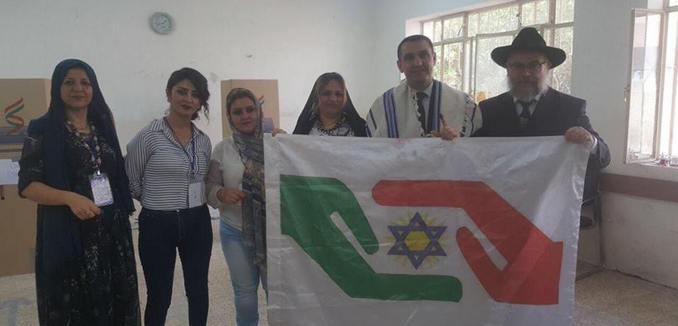Iran has halted flights to airports in the autonomous Kurdish region in northern Iraq at the request of the central government in Baghdad in retaliation to a referendum on independence, Haaretz reported Monday.
The Islamic Republic stopped air traffic to the international airports of Erbil and Sulaimaniya, in Iraqi Kurdistan, as the first concrete measure against the landmark referendum on September 25, in which people from the Kurdish region voted on whether to break free from Iraq.
Reuters reported that Iran also started military exercises at the Kurdish border. On Monday, Iran’s foreign ministry further announced that the country was closing its border with the autonomous region in northern Iraq in response to a request from the Baghdad government.
The Iranian regime does not recognize its Kurdish community as a distinct ethnic group. Their culture is suppressed and their political rights denied. At least 50,000 Kurds have perished since Ayatollah Khomeini called for a “holy war” against the Kurdish people in the aftermath of the Revolution.
Leading the resistance to an independent Kurdistan, together with Iran, are Syria, Turkey, and the central government of Iraq.
The Iranian-backed Iraqi Shi’ite militias, known as Hashd al-Shaabi, are posing a serious threat to Kirkuk province in northern Iraq. The province is one of the disputed territories between the Kurdistan Regional Government (KRG) and the federal government of Iraq and is currently administrated and protected by the KRG.
In Baghdad, residents dismissed the referendum as an attempt to build an “Israel in Iraq.” Iraq’s central government does not recognize Israel as a state and the two countries have no official diplomatic relations. On Monday, the Iraqi defense ministry confirmed that the Iraqi army started “major maneuvers” in collaboration with the Turkish army at the border in response to the vote.
The Syrian government, which is regaining territory with Iranian and Russian military backing, also opposes the referendum in Iraqi Kurdistan, fearing that it could inspire Kurds in Syria to follow suit.
[Photo: Sherzad Omar Mamsani]




